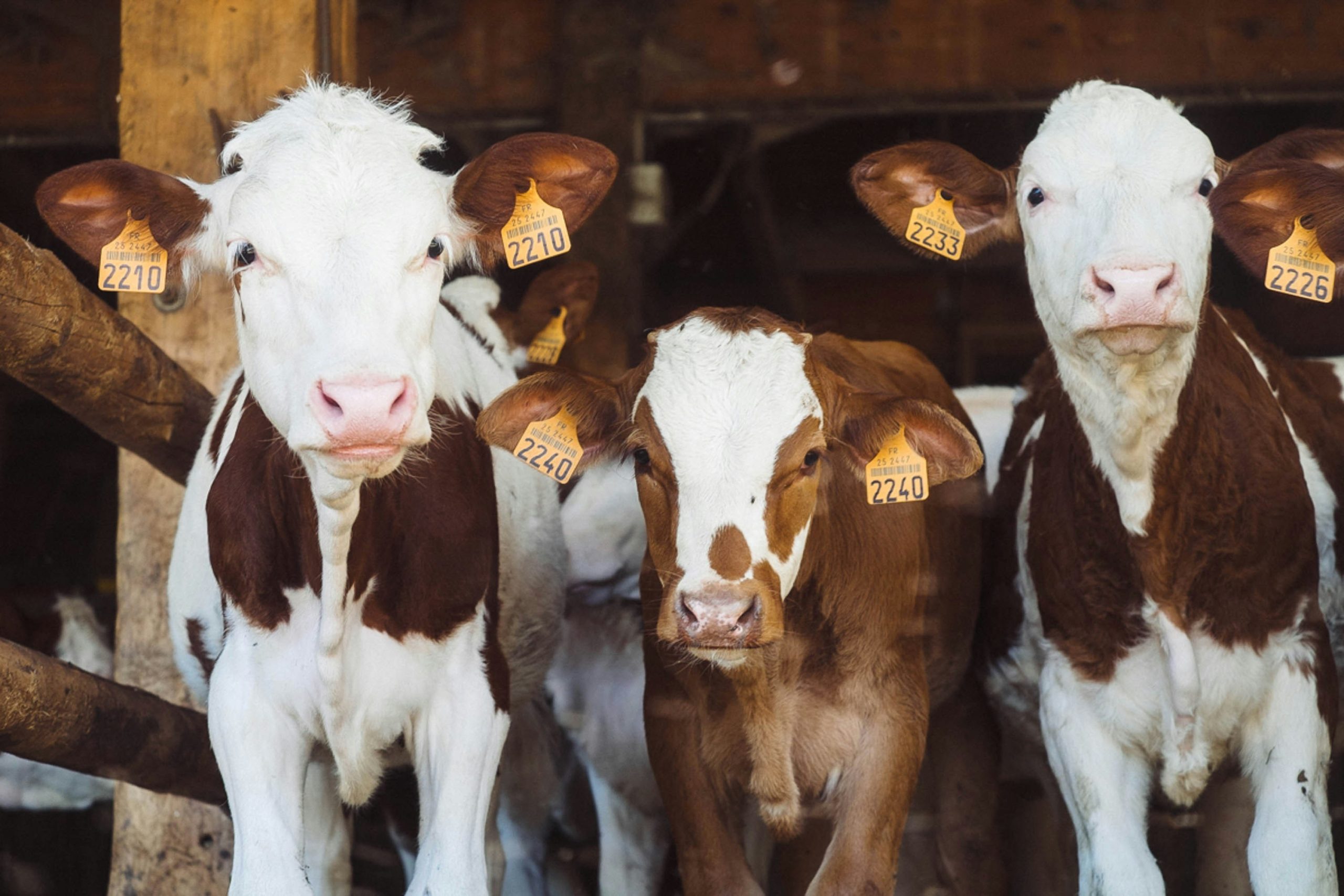
- High Country Conservation
- June 11, 2024
- Ask Eartha
Dear Eartha, I heard that cows are a major contributor to climate change. Is that true?
Are cow burps really a source of greenhouse gas emissions? Mooooost certainly. In fact, emissions from the digestive systems of livestock – particularly beef cattle and dairy cows – are responsible for 27 percent of global methane emissions. In the United States, livestock produce 25 percent of methane emissions (natural gas – which is mostly made of methane – and petroleum systems generate 28 percent). Here in Colorado, cows and other farm animals release 21 percent of methane emissions. What gives? This is a story about rumination and fermentation.
Chew on This
Cows – like sheep, goats, and buffalo – are ruminants. These animals have multiple stomachs to help digest their food. Because even though they eat a lot of grass and plants, they have a hard time digesting it. The first stomach, called the rumen, stores food to make it softer. Later, the animals regurgitate that food and chew it again – if you’ve ever seen a cow thoughtfully chewing its cud, this is what’s taking place. Ruminants also have microbes in their digestive tracts that decompose and ferment the food in their stomachs. This process is called enteric fermentation, and it allows the fuzzy critters to eat plants that would otherwise give them indigestion.
Enteric fermentation also produces the methane that is later released by burping. Up to 10 percent of a cow’s caloric intake turns into methane and is atmospherically released by burps. And every year, one cow can burp up to 220 pounds of methane. When communities, states and countries report their greenhouse gas emissions, the data is typically presented in carbon dioxide equivalent (CO2e). So those 220 pounds of methane result in about three metric tons of CO2e. Across Summit County, the electricity we use in our homes generates 4.4 metric tons of CO2e per home each year. Thus, two cows have a bigger climate impact than your electricity consumption. And there are 1.5 billion cattle worldwide – which is a key reason why cattle’s carbon hoofprint is larger than other farm animals.
Don’t Have Cow, Man
That’s a lot of methane, and it’s worth talking about because methane is a powerful greenhouse gas. It’s is less abundant in the atmosphere than carbon dioxide (CO2) because it dissipates much faster. But while it lasts, it packs a heat-trapping punch – about 28 times more than CO2. That means reducing methane in the atmosphere would help to slow the rate of climate change.
What’s to be done? A lot of folks are studying how changing cows’ diets or how they’re grazed can impact emissions. For example, researchers in California found that adding seaweed to cattle feed reduces methane by over 80 percent.
And what about our human diets? Personal nutritional decisions are just that – personal. But changing the way we eat can have beneficial outcomes for the climate. Project Drawdown is an organization that studies solutions to climate change. Their research shows that in high-income countries like the U.S., the most important action individuals can take to reduce emissions is to eat plant-rich diets. That doesn’t mean no meat! It means less meat. A 2019 study in the journal Scientific Reports found that if all Americans cut meat consumption 25 percent (not just beef, but also pork and poultry), we’d reduce nationwide greenhouse gas emissions by one percent. That might now seem like much, but it’s the same impact as removing 19.5 million cars from the roads for a year. Which is to say, it all adds up.
Calories vs. Kilowatts
If we only focus on reducing emissions from agriculture, we’re not going to meet our climate goals – fossil fuel use for energy and transportation is still the biggest offender at the local, state, national, and global levels. But we also won’t meet global climate goals without addressing the food system and our roles in it. There’s a lot of debate about the importance of individual actions when it comes to solving the climate crisis. Yet research shows that individual actions could reduce up to 30 percent of global greenhouse gas emissions. That gives all of us a lot of power to create change and help others do the same. So, as you plan your summer BBQs, consider putting beet (or bean) burgers on the menu.
Ask Eartha Steward is written by the staff at the High Country Conservation Center, a nonprofit dedicated to waste reduction and resource conservation. Submit questions to Eartha at info@highcountryconservation.org.
